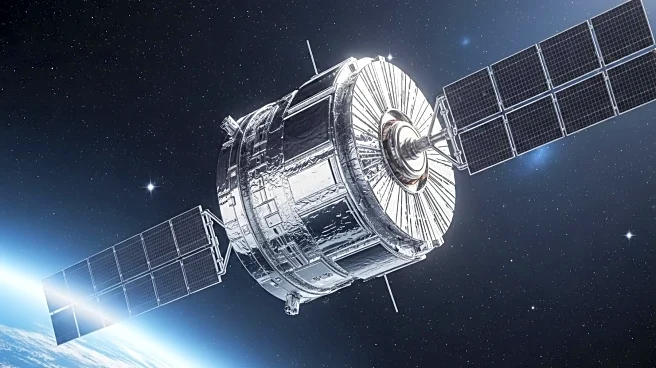What is the story about?
What's Happening?
Germany has unveiled plans to invest €35 billion ($41 billion) in space-related defense projects by 2030. This initiative aims to enhance Germany's technological independence and protect its assets in orbit amid increasing militarization of outer space. Defense Minister Boris Pistorius announced the investment at the German industry's Space Congress, highlighting the vulnerability of satellite networks and the need for comprehensive space security architecture. The plan includes hardened systems against attacks, improved orbital surveillance, and the development of 'guardian satellites.'
Why It's Important?
Germany's investment in military-space capabilities reflects the growing importance of space in national security and defense strategies. As satellite networks become critical infrastructure, protecting them from potential adversaries is essential. The investment signals Germany's commitment to maintaining technological leadership and addressing emerging threats from countries like Russia and China. This move may influence other nations to enhance their space defense capabilities, potentially leading to increased competition and collaboration in space security.
What's Next?
Germany will proceed with the development of its military-space infrastructure, including the establishment of a military satellite operations center. The investment may prompt discussions on international space security policies and cooperation among allies. Germany's focus on offensive capabilities in space marks a shift in its defense strategy, potentially influencing future military engagements and diplomatic relations.
Beyond the Headlines
The investment raises ethical and legal questions about the militarization of space and the implications for global security. It challenges the principles of the Outer Space Treaty, which emphasizes peaceful use of space. The initiative may affect cultural perceptions of space exploration and the role of technology in shaping defense policies.
















